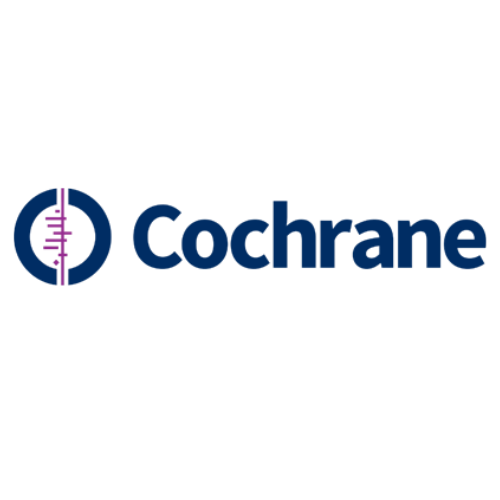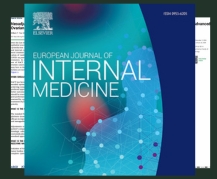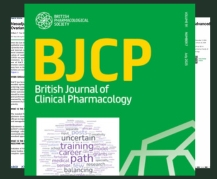Clinical Literature Review for an Evidence-based Medicine
Systematically analyze and synthesize clinical research to support evidence-based decision-making and improve patient care outcomes.
Professional Clinical Literature Review for Evidence-Based Medicine: Interpret Scientific Evidence with Rigor, Relevance, and Reliability
At Pubrica, we specialize in providing systematic, high-quality clinical literature reviews to support evidence-based medical decisions, clinical guideline development, clinical trial design, regulatory submissions, and other exploratory research activities.
Our services are tailored to meet the needs of physicians, surgeons, healthcare providers, as well as pharmaceutical and medical device companies, by providing reliable, scientifically validated insights through systematic review writing and high-quality medical writing.
- Synthesizing validated clinical evidence from peer-reviewed literature
- Contributing to clinical practice guidelines, protocols, and trial designs
- Shaping health technology assessments (HTA) and regulatory submissions.
We also support early-stage research by:
- Investigating unmet medical needs
- Exploring novel therapeutic areas
- Reviewing existing literature before initiating preclinical or Phase I clinical trials

Using Pubrica’s multidisciplinary team consisting of clinical researchers, epidemiologists, biostatisticians, and content experts, we can ensure the medical literature review is accurate, methodologically robust, and clinically valid.
Pubrica provides end-to-end support for a comprehensive literature review to advance clinical research, product development, and regulatory strategy. Our services include:

- Robust process that can be replicated
- PRISMA-compliant process
- Risk of bias assessment
- Meta-analysis (if applicable)
- Broad overview of a clinical topic
- Expert syntheses of key findings
- Good for white papers, background sections, or medical education
- Mapping key ideas and research gaps
- Best for early-phase research or new therapy areas
- Focused review of subject matter, populations, or outcomes
- Supports health economics, value dossiers, and HTA filings
- Compilation of evidence for an IND, NDA, BLA, 510(k), or CE mark
- Aligns with FDA/EMA guidelines and regulatory requirements
- Literature-based background and justification for the trial design
- Identify endpoints, comparators, and safety considerations
- Literature reviews to support reimbursement and payer submissions
- Cost-effectiveness, clinical effectiveness, and real-world evidence
- Identify unmet medical needs
- Analyse current therapies and competitor pipelines
- Literature evidence to guide preclinical and Phase I trial planning
- Evaluation of novel therapeutic targets or indications
At Pubrica, we provide comprehensive review for EBM covering a broad range of topics to support pharmaceutical companies, medical device manufacturers, healthcare providers, and biomedical innovators. We conduct evidence synthesis across:
Populations
- Specific medical conditions (e.g., oncology, cardiology, infectious diseases, rare diseases)
- Special populations (e.g., paediatric, geriatric, pregnant patients, immunocompromised)
- Comorbidities and risk stratification
- Active pharmaceutical ingredients (APIs)
- Excipients and delivery system materials
- Biosimilars and biologics (e.g., monoclonal antibodies, vaccines)
- Natural compounds and traditional medicine ingredients (e.g., plant-based actives)
- Raw materials in drug development and manufacturing
- Diagnostic equipment components (e.g., MRI, CT, X-ray, ultrasound)
- Surgical and implantable materials (e.g., titanium, biodegradable polymers, ceramics)
- Dental materials and prosthetics
- Biocompatibility, durability, and performance evaluations
- Wearable devices and digital health technologies
- 3D-printed biomedical devices and materials
Outcomes
- Treatment efficacy and safety
- Comparative effectiveness
- Quality of life and patient-reported outcomes (PROs)
- Adherence and treatment burden
Data
- Cost-effectiveness and value assessments
- Budget impact analyses
- Real-world evidence (RWE) integration
- Post-marketing surveillance and pharmacovigilance data
- Artificial intelligence in healthcare
- Personalized and precision medicine
- Nanotechnology and bioengineering materials
- Telemedicine and virtual care models
- Sustainability in medical product design
Our Approach
Pubrica offers systematic, detailed, and methodologically sound clinical literature reviews to facilitate evidence-based decision-making in healthcare. Our services integrate Systematic Review Support to objectively appraise and synthesize the latest clinical evidence, enabling the client to incorporate vetted research findings into clinical, procedural, policy documents, grant proposals, and the development of medical products.
Our expert medical writers and domain specialists:
- Use databases, including PubMed, Embase, Cochrane Library, Scopus, and CINAHL to conduct targeted, thorough, and reproducible literature searches
- Utilize evidence-based processes like PRISMA, MOOSE, and AMSTAR 2 processes for systematic and scoping reviews
- Appraise the quality of evidence using GRADE, Jadad scale, or Newcastle-Ottawa tools so that each study appraised and graded is recorded transparently
- Summarize using true qualitative, quantitative, or both quantitative and qualitative methods, including meta-analysis, narrative synthesis, or evidence mapping
- Produce clinically-focused summaries and tables to PICOT characteristics and clinical endpoints
Our EBM literature review is compliant with ICMJE, CONSORT, and EQUATOR standards, enhancing the credibility, reproducibility, and academic value of the research.

Who We Serve
At Pubrica, we provide expert-driven research writing support designed for stakeholders in medical research, health care decision-making, and regulating agencies.

Pharmaceutical and Biotech Companies
For drug development documentation, mechanism-of-action reviews, safety/efficacy evaluations, and literature support for regulatory dossiers (e.g., IND, NDA, CTD).

Medical Device and Diagnostic Firms
To support clinical evaluation reports (CER) (CE marking, 510(k), PMA), white papers, and technical documentation for regulatory approvals (e.g., EU MDR, FDA).

Healthcare Providers and Clinical Practitioners
To support diagnostic decisions, treatment planning, CME, and practice guideline development through structured synthesis of recent clinical evidence.

Academic and Research Institutions
For dissertation development, thesis writing, academic literature review, topic mapping, gap analysis, and peer-reviewed journal publications, requiring methodologically sound and publication-ready literature review is required.

Regulatory & Government Agencies
Evidence gathering for public health programs, Data reviews for health policy decisions, and technical documentation for compliance and surveillance.

Hospitals and Medical Research Units
To facilitate clinical audits, protocol development, institutional ethics committee submissions, and internal training material based on updated clinical findings.

Biomedical & Material Science Companies
Literature on biomaterials, polymers, nanomaterials, and coatings, technical and safety reviews for medical-grade raw materials, and device-material interaction and biocompatibility studies.

Contract Research Organizations (CROs)
To aid in clinical trial documentation, literature-based justification of endpoints, and background sections for study protocols or investigator brochures.

Health Technology Assessment (HTA) & Market Access Teams
Cost-effectiveness and value demonstration. Comparative effectiveness and outcomes evidence and support for payer submissions and value dossiers.
How Our Clinical Literature Review Service Works
Our step-by-Step Process
Clinical literature reviews should use a protocol-driven and reproducible six-step process to ensure that they adhere to the highest standards of evidence-based medicine (EBM), regulatory compliance, and scientific integrity.

Define Research Objective
We work with you to formulate a specific, clinically relevant research question using the PICO (Population, Intervention, Comparator, Outcome) or SPIDER methodology

Protocol Development
Prepare review protocols based on PRISMA-P or the JBI guidelines

Comprehensive Literature Search
Conduct a systematic search of databases including PubMed, Embase, Cochrane, Scopus, and Web of Science

Study Screening & Selection
Two-level screening (title/abstract followed by full-text) is performed using PRISMA-compliant flow diagrams

Data Extraction and Quality Appraisal
Standardized templates to extract study characteristics, interventions, outcomes, and results. Quality assessment using validated tools (e.g., GRADE, Jadad Scale, or Newcastle-Ottawa Scale), depending on the study design

Evidence Synthesis and Reporting
Depending on the scope, we perform: Narrative synthesis, meta-analysis, or evidence mapping. Results are presented using forest plots, summary of findings tables, and clinical interpretation

Speed up your clinical literature review writing service with Pubrica
Pubrica provides a medical literature review service which provides a detailed guide to help you to identify the right journal for your paper. Our service provides comprehensive analysis based on scope, range of impact factor, indexing requirements, and more, based on your paper and your preferences.Our Compliance and Guideline Standards
At Pubrica, all our clinical literature review services are rooted in accepted internationally recognized standards and frameworks to guarantee methodological rigor, transparency, scientific validity, and regulatory readiness. Our processes are guided by best practices in scientific research and industry-specific requirements.

PRISMA (Preferred Reporting Items for Systematic Reviews and Meta-Analyses)
For transparent and standardized reporting of systematic reviews.

Cochrane Handbook for Systematic Reviews of Interventions
For evidence-based methodology and quality assessment.

JBI (Joanna Briggs Institute) Guidelines
For scoping reviews, evidence summaries, and qualitative syntheses.

ICH Guidelines (E6, E3, E9, etc.)
For clinical trial design, reporting, and statistical methods.

FDA and EMA Standards
For regulatory submissions including IND, NDA, BLA, and 510(k).

CE Marking & MDR (EU Medical Device Regulation)
For medical device literature reviews and clinical evaluation reports (CER).

CONSORT & STROBE Guidelines
For assessing clinical trials and observational studies.

Good Publication Practice (GPP3)
For ethical and transparent reporting of medical writing.

Clinical Literature Review Sample Work
Download the full Report Now
Explore our clinical literature review samples, systematically developed to meet journal submission standards, evidence-based methodology, and stringent timelines for regulatory or academic use.
Pubrica works with flexible, tiered plans to collect and report on a wide range of evidence synthesis needs across academic, clinical, and industry purposes. Each package meets international methodological standards (PRISMA, JBI, Cochrane) while reflecting the project’s scope, depth, and urgency.

Starter
Ideal for First-Time Authors

Advanced
For Mid-Tier or Indexed Journals

Elite
Comprehensive & Premium
-
Ideal for:
Medical students, early-career clinicians, and researchers at the preliminary stage of literature review.
-
Includes: Clinical question framing (PICO)
2-database search (e.g., PubMed, Cochrane)
Title & abstract screening
Narrative synthesis (up to 20 studies
Reference list (APA/AMA/Harvard)
-
Optional Add-ons:
Protocol registration (e.g., PROSPERO)
PowerPoint summary deck
Journal selection support
-
Turnaround:
7 to 10 working days
-
Ideal for:
Practicing physicians, postgraduate students, and PhD candidates conducting in-depth clinical reviews.
-
Includes: Full protocol document
Search across 4–5 databases
Dual-reviewer screening
Full-text analysis
Risk of Bias assessment
Thematic synthesis or structured tabulation
PRISMA 2020 flowchart
-
Optional Add-ons:
Statistical meta-analysis
Infographic summary
Journal formatting (targeted)
-
Turnaround:
12 to 15 working days
-
Ideal for:
Hospital research teams, academic institutions, evidence-based guideline developers, and systematic review authors.
-
Includes:
Extensive review of 40+ articles across more than five databases, including Cochrane, Web of Science, Embase, and PubMed
Custom protocol design adhering to PRISMA 2020 guidelines
Full search strategy appendix
Risk of bias assessment using tools such as ROB-2 or GRADE
Tabular and narrative synthesis of findings
High-level technical editing and end-to-end support for journal submission
-
Optional Add-ons:
Full manuscript submission service
Conference abstract & poster design
CER integration for medical devices
- Turnaround: 15 to 20 working days
Testimonials
Our clinical literature review services have helped global researchers, clinicians, and industry experts publish high-quality, evidence-based reviews in top-tier journals. Here’s what our clients say:

"Pubrica’s team delivered a systematic review on anticoagulant therapy in atrial fibrillation that surpassed our expectations. The review followed PRISMA and GRADE methodology with well-structured forest plots and bias assessments. The work was published in the European Journal of Internal Medicine.”
Dr. Elena Hoffman,
Clinical Research Director, Germany


"We needed a rapid literature review for oncology treatment patterns for internal submission, and Pubrica responded with accuracy and speed. The document aligned with ICMJE standards and supported our publication in the Journal of Cancer Research and Therapeutics.”
Dr. Anil Menon,
Medical Affairs Lead, India


"Pubrica conducted a meta-analysis on paediatric analgesic efficacy that was both statistically robust and clinically relevant. Their adherence to PRISMA and AMSTAR 2 standards facilitated acceptance in the British Journal of Clinical Pharmacology.”
Prof. Samuel Walker,
Department of Clinical Pharmacology, UK

A Clinical Literature Review is a structured, critical synthesis of published research aimed at answering specific clinical or scientific questions. Within the Evidence-Based Medicine (EBM) framework, it supports informed healthcare decisions by summarizing the best available peer-reviewed evidence, including clinical trials, guidelines, and real-world data.
Pubrica’s clinical literature review service follows globally accepted guidelines such as PRISMA, Cochrane, and JBI. We employ:
- Structured search strategies
- Critical appraisal tools like GRADE or CASP
- Clear evidence synthesis aligned with EBM and regulatory expectations
Our reviews are publication-ready, compliant with regulatory standards, and tailored for clinical decision-making or submission dossiers.
We offer a wide range of evidence synthesis services, including:
- Systematic Review
- Narrative Review
- Scoping Review
- Meta-Analysis
- Rapid Review
- Integrative Review
Each is customized based on your research question, project goals, and target journal or regulatory body.
Our literature review team has expertise across diverse therapeutic areas, including:
- Oncology, Cardiology, Neurology, Endocrinology
- Infectious Diseases, Rare Diseases, Public Health
We assign subject-matter experts to ensure domain-specific relevance and accuracy.
Yes. We assist with:
- Protocol writing (using PRISMA-P or JBI guidelines)
- PROSPERO registration or other repositories
This ensures transparency, reproducibility, and alignment with publication or regulatory requirements.
Our process includes:
- Dual independent screening
- Use of critical appraisal checklists like GRADE, AMSTAR 2, and CASP
- Risk of bias assessment
This ensures that only high-quality, clinically relevant evidence is included in the final review.
We conduct comprehensive literature searches across major scientific databases, including:
- PubMed/MEDLINE
- Embase
- Cochrane Library
- Scopus
- Web of Science
We also search grey literature, clinical trial registries, and regulatory documents as needed.
Insights
How to Structure Case Reports and Review Articles for Medical Journals
Medical journals expect a structure for case reports and review articles, with clear objectives....
⮕How Should Physicians Choose the Right Journal for Submitting a Case...
Publishing a case report involves more than clinical knowledge; it also demands strategic journal ....
⮕How Physicians Can Write Clear and Impactful Patient Education Materials
Effective patient education materials (PEMs) are crucial for promoting health literacy, enhancing....
⮕










